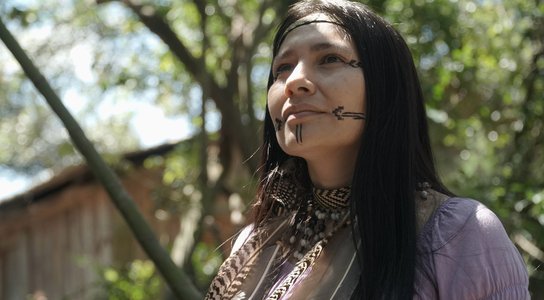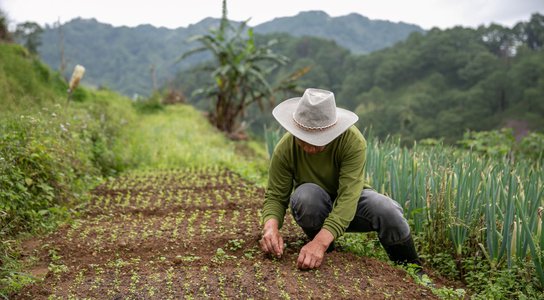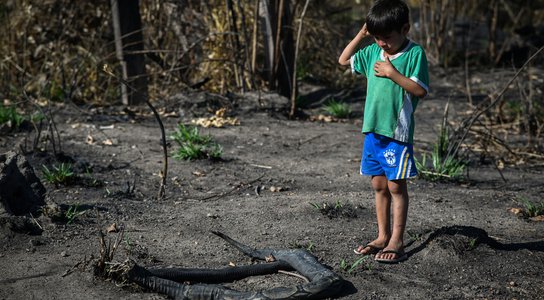Voters in Brazil, the Philippines, and Colombia – nations central to global efforts to respond to the climate crisis – will elect new leaders in 2022. And despite what the leading candidates might tell you, those elections are climate elections.
Environmental issues are unlikely to tip the balance at the ballot box. In domestic politics, votes are sought and won on the issues of the day: pandemic response, racial justice, or rising inflation and economic inequality. But the climate crisis knows no borders, and these issues are all fundamentally interconnected. Protecting public health is climate action. Breaking down racial barriers is climate action. And reducing poverty is climate action. That’s why every election is now a climate election.
As with all Global South nations, these three countries have not caused the current climate crisis. Despite this, it is their people who are being disproportionately affected by it. This is undoubtedly unfair. But this reality makes it imperative that these countries have strong leadership in government. This includes governments that act to hold high emissions northern economies, primarily responsible for the climate crisis, to account, and governments that prioritise the protections of their people and environment over corporate greed.
These three countries spanning the tropics are crucial bulwarks in the fight against climate breakdown. With a combined population of over 370 million people, they are also home to some of the last remaining primary tropical rainforests, astounding biodiversity, and to Indigenous Peoples’ knowledge and culture. They’re also suffering the immediate impacts of climate change most intensely – especially the Philippines, which numerous studies have found to be the most climate vulnerable nation in the world.
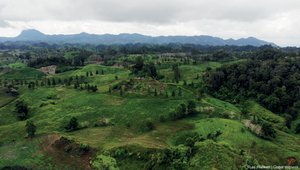
An army base overlooks a coffee plantation in Mindanao, the Philippines. Eight members of the community who opposed the plantation were killed in an army attack in 2017.
Despite that, environmental issues aren’t featuring in political campaigning. That’s justifiable. These three countries have contributed little to the climate crisis, ranking low in cumulative per capita emissions. Adding to that injustice, their natural resources were looted by European nations during the colonial era, and despite the crucial role they play in global ecosystems, multinational corporations continue to recklessly reap big profits from indigenous minerals, forests, and water resources. Global Witness investigations have repeatedly shown the terrible impact of corporate abuse on both the environment and human rights in all three nations and across the Global South.
This combination of environmental degradation and human exploitation has consequences. Over the past decade, these three nations have been a hotbed for violence against land and climate activists: our data shows that at least 317 defenders were murdered in Brazil, 290 in Colombia, and 250 in the Philippines. Altogether that accounts for well over half of all recorded murders globally in the past decade.
All of this means that the outcome of these upcoming elections
matters far beyond these three countries. The governments which emerge from
these elections will take on stewardship of a vast swathe of the world’s
remaining rainforest and biodiversity. Brazil and Colombia rank first and fifth
in remaining forest cover globally. Beyond deforestation, how these governments
protect the rights of people while satisfying a growing demand for energy is
also crucial to global emission reduction targets. In the Philippines, the
Duterte administration has in the past two years lifted bans on oil exploration
in the South China Sea, and reinstated open-pit mining and locked the nation
into new long-term fossil fuel agreements, including on coal.
Populist authoritarian leaders have tested democratic guardrails in these three nations in recent years, especially in Brazil and the Philippines. Jair Bolsonaro, who has presided over the destruction of 10,000 square miles of Brazilian rainforest, recently asserted that “only God can take me from the presidency”. Voters may disagree. President Duterte’s drugs war, his hounding of enemies and his court packing have undermined Filipino institutions more than at any time since the dictatorship of Ferdinand Marcos. And in Colombia, Ivan Duque has cracked down violently on historic protests, spurred in part by his failure to implement the 2016 peace accords.
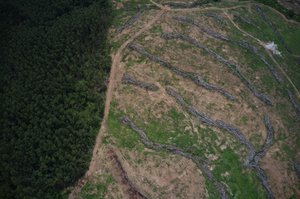
Deforestation in Marabá, Pará State, Brazil.
It would be easy to set the politics of these diverse nations into the traditional left/right progressive/conservative framework. It’s no longer that simple. Many progressive leaders in the Global North have proven huge disappointments on climate issues once in office. And indeed, with climate denial now a politically implausible position, almost all mainstream political figures at the very least pay lip service to the environment and to distant net-zero pledges. Yet we know that authoritarians who disregard science and foment division for political gain are incompatible with climate action. There are some simple criteria on which we can judge whether a would-be leader is likely to take climate issues seriously once in office:
- Strong support for independent democratic institutions
- Strong support for the rights to freedom of assembly, protest, and speech
- A program which explicitly support the rights of marginalized communities, including ethnic minority and Indigenous communities
- Distance from extractive corporations
- A science & fact-based policy agenda in line with meeting the Paris Commitments
These three elections won’t determine the climate crisis. But if they result in more distraction, delay and denial, other issues will pale into insignificance. In these elections and in all future contests, campaigners, advocates, and voters should be prepared to support any candidate satisfies these criteria and puts climate justice at the heart of their agenda.
